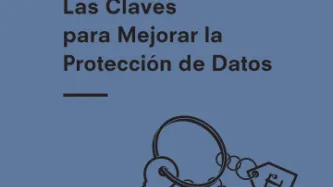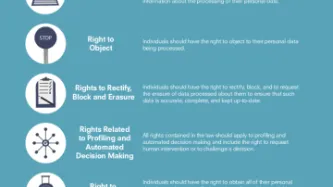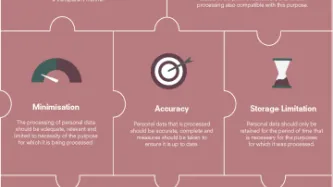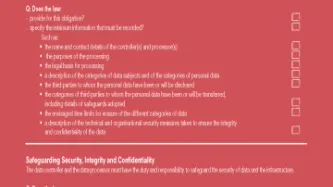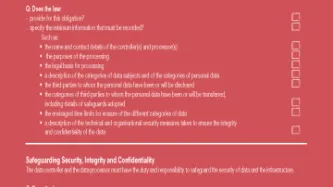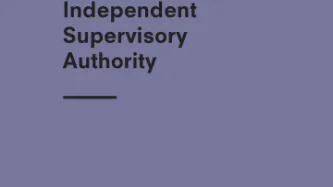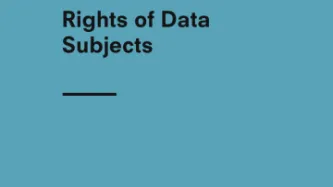Search
Content type: Report
Intelligence sharing between countries is one of the most pervasive and least regulated surveillance practices carried out by governments across the world. It is facilitated by rapidly evolving surveillance technologies that enable intelligence agencies to collect, store, analyse and share ever larger amounts of people’s personal information.
This briefing paper, written jointly by the International Network of Civil Liberties Organizations (INCLO) and PI, sets out urgent recommendations that…
Content type: Long Read
National and International civil society organisations (CSOs) play vital roles in many aspects of our societies as watchdogs of state powers, as representatives of the voices of the people, as experts to inform and educate an array of stakeholders.
One of our key lessons learned from three decades of work, including 10 years with the Privacy International Networkto build a global privacy movement,promoting and advocating for the highest privacy and data protection safeguards has been…
Content type: News & Analysis
Creative Commons Photo Credit: Source
Just about everyone in Washington has found something to dislike about the tech industry: Democrats especially, are worried about foreign interference in the 2016 election — meanwhile some Republicans are more concerned about bias against conservatives of platforms and on top of it all President Trump has been tweeting about antitrust and competition.
Privacy International is a vocal critic of data exploitation more generally, and the systemic…
Content type: Report
Esta parte de "Las Claves para Mejorar la Protección de Datos" proporciona enlaces a recursos adicionales y describe las vías de participación para mejorar el involucramiento de las organizaciones de la sociedad civil en estos temas.
Content type: Report
This part of “The Keys to Data Protection” provides links to further resources and outlines avenues for engagement which we hope will encourage more civil society organisations to engage in policy developments and legal processes on data protection.
Content type: Report
Esta parte de "Las Claves para Mejorar la Protección de Datos" describe los modelos y estructuras, así como los poderes y funciones de una autoridad de supervisión independiente.
Content type: Report
This part of “The Keys to Data Protection” outlines the models and structures as well as powers and functions of an independent supervisory authority, which plays an essential role as an independent oversight and enforcement mechanism of data protection law.
Content type: Report
Esta parte de "Las Claves para Mejorar la Protección de Datos" presenta las responsabilidades, obligaciones y responsabilidades de quienes procesan datos personales, para garantizar que sean responsables ante la ley.
Content type: Report
This part of “The Keys to Data Protection” presents the responsibilities, obligations, and liability of those who process personal data, to ensure data controllers and processors are held accountable under the law.
Content type: Report
Esta parte de "Las Claves para Mejorar la Protección de Datos" describe y explica la base legal permitida para el procesamiento de datos personales, que debe estar limitada y claramente articulada en la ley.
Content type: Report
This part of “The Keys to Data Protection” outlines and explains the legal basis permitted for the processing of personal data, which should be limited and clearly articulated in law.
Content type: Report
Esta parte de "Las Claves para Mejorar la Protección de Datos" presenta los derechos clave para los titulares de protección de datos personales, que deben ser respetados y aplicados por quienes procesan efectúan tratamiento de datos.
Content type: Report
This part of “The Keys to Data Protection” presents eight key rights for individuals (also known as ‘data subjects’) that should be followed and enforced by those who process personal data, including the right to access, the right to object, and the right to an effective remedy.
Content type: Report
Esta parte de "Las Claves para Mejorar la Protección de Datos" presenta disposiciones generales para una ley de protección de datos, que incluyen el objeto y el propósito de la ley y las definiciones básicas que debe contener.
Content type: Report
This part of “The Keys to Data Protection” presents what should be provided for in the general provisions of a data protection law including the object and purpose of the law and definitions.
Content type: Report
Esta parte de "Las Claves para Mejorar la Protección de Datos" presenta y explica siete principios clave para la protección de datos personales, derivados de marcos regionales e internacionales en la materia.
Content type: Report
This part of “The Keys to Data Protection” presents and explains seven key data protection principles, derived from regional and international frameworks, covering elements such as minimisation, storage limitation, and accountability.
Content type: Report
Esta parte de "Las Claves para Mejorar la Protección de Datos" explica qué es la protección de datos, por qué se necesita y cómo trabajar estos temas. También describe por qué la protección de datos es esencial para el ejercicio del derecho a la privacidad.

